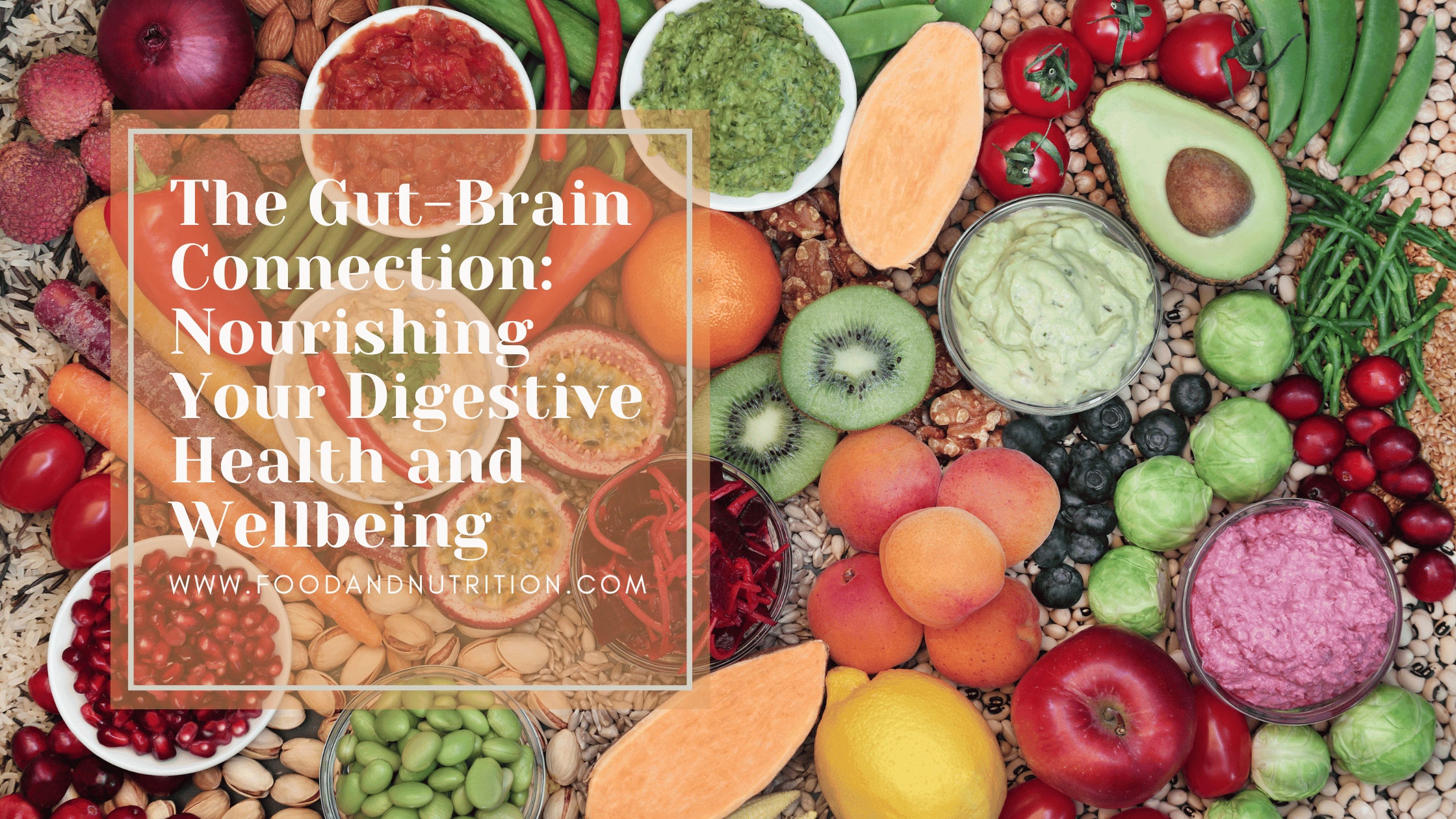Elevate Wellbeing: The Gut-Brain Connection & Nourishing Meals

In the intricate web of human health, an intriguing connection has emerged in recent years – the relationship between the gut and the brain. It’s a connection that underscores the importance of digestive health not just for physical wellness but also for mental wellbeing. This dynamic interplay, often referred to as the gut-brain axis, reveals that the foods and beverages we choose can impact not only our digestion but also our mood, emotions, and overall quality of life. In this comprehensive guide, we’ll delve into the fascinating realm of the gut-brain connection, exploring what to consider eating for digestive health, offering versatile meal ideas, and fostering a positive image of nourishing your body.
Understanding the Gut-Brain Connection
The gut-brain axis is a bidirectional communication pathway between the gut and the brain, involving a complex interplay of hormones, neurotransmitters, and the vagus nerve. This connection highlights that our digestive system is not merely responsible for breaking down food – it plays a pivotal role in influencing our mental and emotional states.
Impact on Mood and Emotions
A key player in this connection is serotonin, often dubbed the “feel-good” neurotransmitter. Did you know that about 90% of serotonin is produced in the gut? Imbalances in gut bacteria (microbiota) can disrupt serotonin production, potentially contributing to mood disorders like anxiety and depression. Nourishing your gut with the right foods can therefore indirectly impact your emotional wellbeing.
Inflammation and Mental Health
Chronic inflammation has been linked to both gut and mental health issues. Conditions such as irritable bowel syndrome (IBS) and certain mood disorders are influenced by inflammation. The foods we consume play a significant role in regulating inflammation – an excellent reason to adopt a diet rich in anti-inflammatory nutrients.
Diet and Gut Health: What to Consider Eating
- Fiber-Rich Foods: Fiber acts as a prebiotic, fueling the growth of beneficial gut bacteria. Opt for whole grains, fruits, vegetables, legumes, and nuts. These foods provide a nourishing environment for your gut microbiota, aiding in digestion and potentially influencing your mood.
- Probiotic Foods: Incorporate fermented foods like yogurt, kefir, kimchi, and sauerkraut. Probiotics introduce beneficial bacteria to your gut, promoting a balanced microbiome that positively impacts both digestion and mental health.
- Omega-3 Fatty Acids: Sources like fatty fish (salmon, mackerel) and walnuts provide omega-3 fatty acids. These nutrients have anti-inflammatory properties and can contribute to improved gut health, potentially affecting mood disorders.
Versatile Meal Ideas for Gut Health
- Breakfast: Start your day with a probiotic-rich yogurt parfait topped with berries and a sprinkle of nuts. This combines fiber, probiotics, and antioxidants to kickstart your digestion and set a positive tone for the day.
- Lunch: Enjoy a colorful salad with leafy greens, chickpeas, avocado, and a drizzle of olive oil. This fiber-packed meal supports gut health and provides healthy fats that can influence mood regulation.
- Dinner: Grilled salmon paired with quinoa and steamed broccoli is a powerhouse meal. Salmon’s omega-3s can promote both gut and mental health, while quinoa and broccoli contribute to fiber and essential nutrients.
Fostering a Positive Image of Eating
Nourishing your body is a celebration of life itself. Embrace eating as a way to nurture your physical and mental wellbeing. Focus on mindful eating – savor the flavors, textures, and aromas of your meals. Eating in an unhurried and relaxed manner aids digestion and encourages a positive relationship with food.
Conclusion
As we uncover the secrets of the gut-brain connection, we realize that our dietary choices hold remarkable power. By selecting foods that support digestive health, we pave the way for improved mood, mental clarity, and overall vitality. From fiber-rich choices to probiotic-packed delights, each bite contributes to the symphony of your gut-brain axis. Embrace the joy of nourishing your body, and watch as your wellbeing flourishes, both physically and emotionally.
- Discover the Nordic Diet: A Path to Health and Sustainability
- Ultimate Guide to Nutrition & Wellness Tips for Healthy Travel Adventures
- Personalized Menu Planning: Tailoring Nutrition to Individual Needs
- Discover the Best Healthy Cooking Oils: Benefits, Uses, and Expert Tips
- Ultimate Guide to Adaptogens: Benefits, Uses, and How to Incorporate Them
- The Ultimate Guide to Healthy Cooking Oils: Benefits, Uses, and Tips